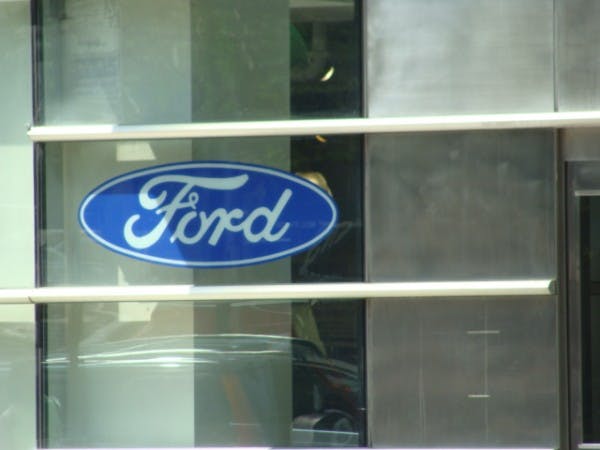As a Ford Motor Company (NYSE:F) shareholder it’s frustrating to see the recent onslaught of vehicle recalls. Problems have included anything from child safety locks, rusting, and even fire risks. Unfortunately the fire risk was associated with an EcoBoost engine used in two popular vehicles, the Escape and the Fusion. It isn’t just Ford Motor Company (NYSE:F), though; other manufacturers are having an even worse time recently with recalls. In fact, if you were to guess which two automakers had the most recalls in 2012, which would it be? If you guessed Toyota Motor Corporation (NYSE:TM) and Honda Motor Co Ltd (ADR) (NYSE:HMC) – two carmakers previously known for high quality – you would be correct. Let’s look at these companies and see if their recalls will affect sales or investors.

Toyota Motor Corporation (NYSE:TM) recalled 5.3 million vehicles in 2012 taking the dubious honors at the top spot for most recalls. Japanese rival Honda Motor Co Ltd (ADR) (NYSE:HMC) tried to keep it close by tallying 3.3 million vehicle recalls. GM took home the bronze with 1.4 million recalls, while Ford chalked up 1.3 million. Other than last year, when is the last time you could combine GM and Ford’s recalls and equal less than Honda or Toyota Motor Corporation (NYSE:TM)?
Escape and Fusion
These two models were recently redesigned and have been selling like hotcakes. February was another solid month, and Ford Motor Company (NYSE:F)’s first quarter is shaping up to be a great one for its revenue. The Fusion had a record February with a 28% gain over last year. The Escape had two record months in a row, with February topping last year’s mark by 29%. Let’s look at the recent onslaught of recalls. If these persist, or gain the attention of the consumer too often, it could dampen such great sales increases.
Last year Ford Motor Company (NYSE:F) had to recall 7,600 new Escapes because of a coolant leak that was causing engines to overheat and possibly catch fire. The problem was due to an engine plug being installed incorrectly on some engines, then falling out and causing the leak. Ford also had to recall 11,500 Escapes to fix fuel lines that had the potential to crack and leak. Here’s the one that really made me shake my head: 10,000 vehicles were recalled to fix carpet padding that could interfere with the user’s braking ability.
That said, let’s keep last year’s issues in perspective because they represent a tiny amount of total vehicles sold. Safety advocates consider three vehicle recalls in a vehicle’s first year as a sign of quality problems. The new Escape had four last year, and one this year. That isn’t the start Ford wanted, but at least they avoided any massive recalls – yes, that’s a bit of foreshadowing. The next recall I’ll cover is larger than the previous ones combined, but still not massive.
Ford’s EcoBoost engine has been selling really well and has growing demand with the consumer. Unfortunately, some 1.6-liter turbocharged engines sold in 2013 have an overheating problem, prompting Ford Motor Company (NYSE:F) to recall around 73,000 Escapes and 16,000 Fusions. The consumer seems to have brushed all these recalls aside, and rightfully so, as these are mostly minor issues. Take a look at Toyota’s recent recall which has attracted much more attention.
Known for quality?
Aside from the huge annual recall numbers, Japanese automakers have been plagued by massive individual recalls that garnered more public attention. Toyota Motor Corporation (NYSE:TM) recently announced it was recalling 1.29 million vehicles because of faulty airbags and defective wipers. The faulty airbags accounted for a majority of the recalls: 907,000 vehicles, mostly Corollas. While 385,000 is a large number of Lexus IS vehicles recalled for defective wipers, I can’t imagine that issue causing uproar with consumers — faulty airbags are a much more dangerous issue. Toyota Motor Corporation (NYSE:TM)’s rival Honda also recalled a massive amount of vehicles (800,000) due to a problem that allowed its vehicles to simply roll away when parked. Both companies’ reputations for high quality have taken a hit in the U.S. over the last few years.
Bottom line
Yes, the consumer cares about quality, and recalls hurt an automakers’ image. That said, Toyota Motor Corporation (NYSE:TM)and Honda Motor Co Ltd (ADR) (NYSE:HMC) still have very loyal consumers who are accustomed to their long histories of quality vehicles. It will take much more than a couple years to change that public perception. I bet most people would be shocked to see how few recalls Detroit experienced compared to the Japanese manufacturers. One thing I know is that Detroit is definitely improving its vehicle quality — especially Ford Motor Company (NYSE:F) — and the consumer will notice eventually. Further proof of Ford’s improvements are the five Ford Motor Company (NYSE:F) models that took home awards for best buy for the money, ranked by U.S. News & World Report. The 2012 Ford Edge, Fusion, Fusion Hybrid, Taurus, and Fiesta were picked from the competition for their value and quality.
The key will be to stay away from massive recalls that make headlines; over the last couple of years Detroit is winning that battle. Don’t expect recalls to hinder these companies yet — all are still valid investments during the automotive recovery, in my opinion. Although if this recent trend continues, look for Ford Motor Company (NYSE:F) and GM’s stock to increase as they produce quality vehicles. Detroit is trying its best to make a comeback, and I for one am glad to see it and be a part of it.
The article Vehicle Quality: Detroit Beating the Japanese? originally appeared on Fool.com.
Fool contributor Daniel Miller owns shares of Ford. The Motley Fool recommends Ford. The Motley Fool owns shares of Ford.
Copyright © 1995 – 2013 The Motley Fool, LLC. All rights reserved. The Motley Fool has a disclosure policy.